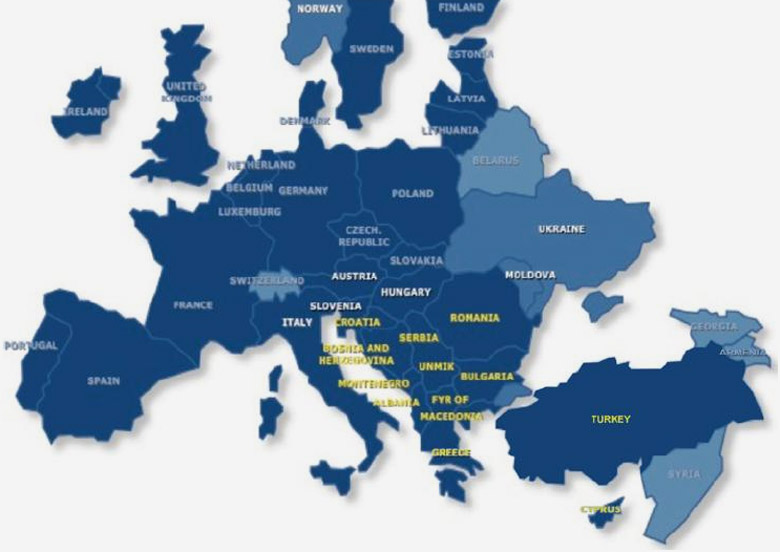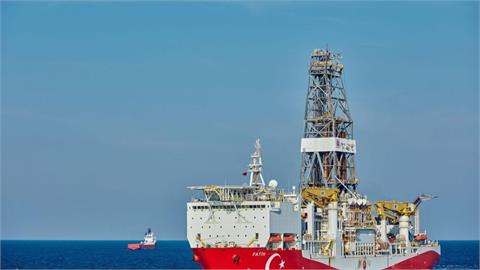by Costis Stambolis* Once again the extensive geographical and geopolitical expanse known as SE Europe, which includes the Haimos peninsula, the East Mediterranean and Turkey, is finding itself ill placed between various conflict zones.
by Costis Stambolis*
Once again the extensive geographical and geopolitical expanse known as SE Europe, which includes the Haimos peninsula, the East Mediterranean and Turkey, is finding itself ill placed between various conflict zones. On the one hand, we have the deepening ethnic strife in Ukraine, powered by an ever assertive Russia, and on the other a violent Salafist uprising in Iraq and Syria, compounded by a prolonged tribal infighting in Libya and the resumption, this time of a particularly vicious Israeli- Palenistian conflict over Gaza.
Regional turmoil appears to be the order of the day in SE Europe’s north east, south east and southernmost edges, which if left unabated sooner or later could threaten the region’s own stability- hard won following the dramatic demise of former Yugoslavia in the 1990’s which has still left open scars in several places, especially in Western Balkans. In this respect the impressive expansion of Wahhabi financed religious establishments over the last few years in several countries in SE Europe is causing concern in view of the latest rise of Islamic fundamentalism and the associated cruel terrorist campaign by ISIS in Iraq and Syria and its potential spillover effects for SE Europe.
As events unfold with unprecedented speed in the Ukrainian- Russian border, especially after the downing of the Malaysian airline and the tremendous loss of life, and consequently with the imposition of much tougher sanctions against Russia by the EU in tandem with the USA, a new cold war is in the making, as it is widely assumed that Russia will be forced to retaliate with counter measures in addition to the ones already taken. In such a case Russian energy supplies to European countries will be at the core of any such action and with Ukraine already threatening to cut off Russian oil and gas supplies, which are shipped through its territory to European countries. In such an event, as it has happened twice before, the worst hit will be Central and SE Europe and countries such as Slovakia, Bulgaria and Greece.
And although Russia is presumably at an advantageous position given its hold on oil and gas supplies, upon which almost all SE European countries rely being net importers, with some of them being 100% dependent, on Russian gas imports, it will not be easy for Moscow to willingly cut off supplies without danger of losing market segment and incurring heavy financial losses. In this respect we may expect Russia to strike back by imposing higher tariffs for crude and product deliveries and of course tougher terms for gas supplies and its transmission to European destinations including SE Europe. Such a move will obviously undermine Europe’s fragile economic recovery, at a time when prospects for a solid return to economic growth look better than ever before since 2008, while raising the spectre of rampant inflation.
On the Salafist front although it is not clear if and how long the new entity known as the "Islamist State” , which is positioning itself as the presumptive New Caliphate, will continue to exist and whether this is the precursor of far more serious developments in the Middle East, it is becoming increasingly clear that we have entered a new period of intense geopolitical instability which inevitably will lead to the redrawing of borders and the emergence of new ethnic entities. Undoubtedly what we witness now in the broader Middle East- North African region, known as MENA , is a confluence of violence resulting from religious based clashes between the two main streams of Islam, the strict and at times ultra conservative Sunni dogma and the more liberal Shia tradition. In addition, we have the aspirations of the suppressed Kurdish ethnicity which now sees a chance for independence and economic and social development fueled by ample, and at last, fully controlled hydrocarbon resources.
Between the ongoing Russian- Ukrainian crisis and the impending geopolitical explosion in MENA we have an ever complex situation which inadvertedly affects S.E. Europe and could seriously undermine its energy supplies and long term political and economic sustainability. At this stage where we are still faced with a very fluid situation, we cannot predict with any reasonable accuracy how energy security and economic growth will be affected. For instance, we may see a certain premium being changed on oil, gas or coal consignments or the imposition of much tougher delivery terms. One thing is becoming clearer though, and this is related to SE Europe’s pivotal position when it comes to guaranteeing European energy supplies. The region’s real geopolitical significance therefore, lies in its role as an enlarged energy bridge, a sort of viaduct, for transporting vast quantities of oil, gas and coal from the East to the West. With the short and long term security of this energy corridor being of vital importance to European economic and security interests.
* Executive Director of IENE




